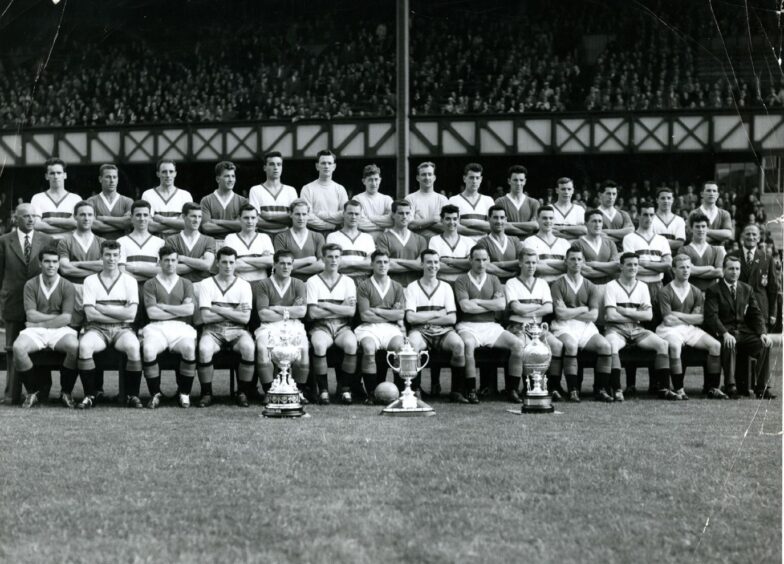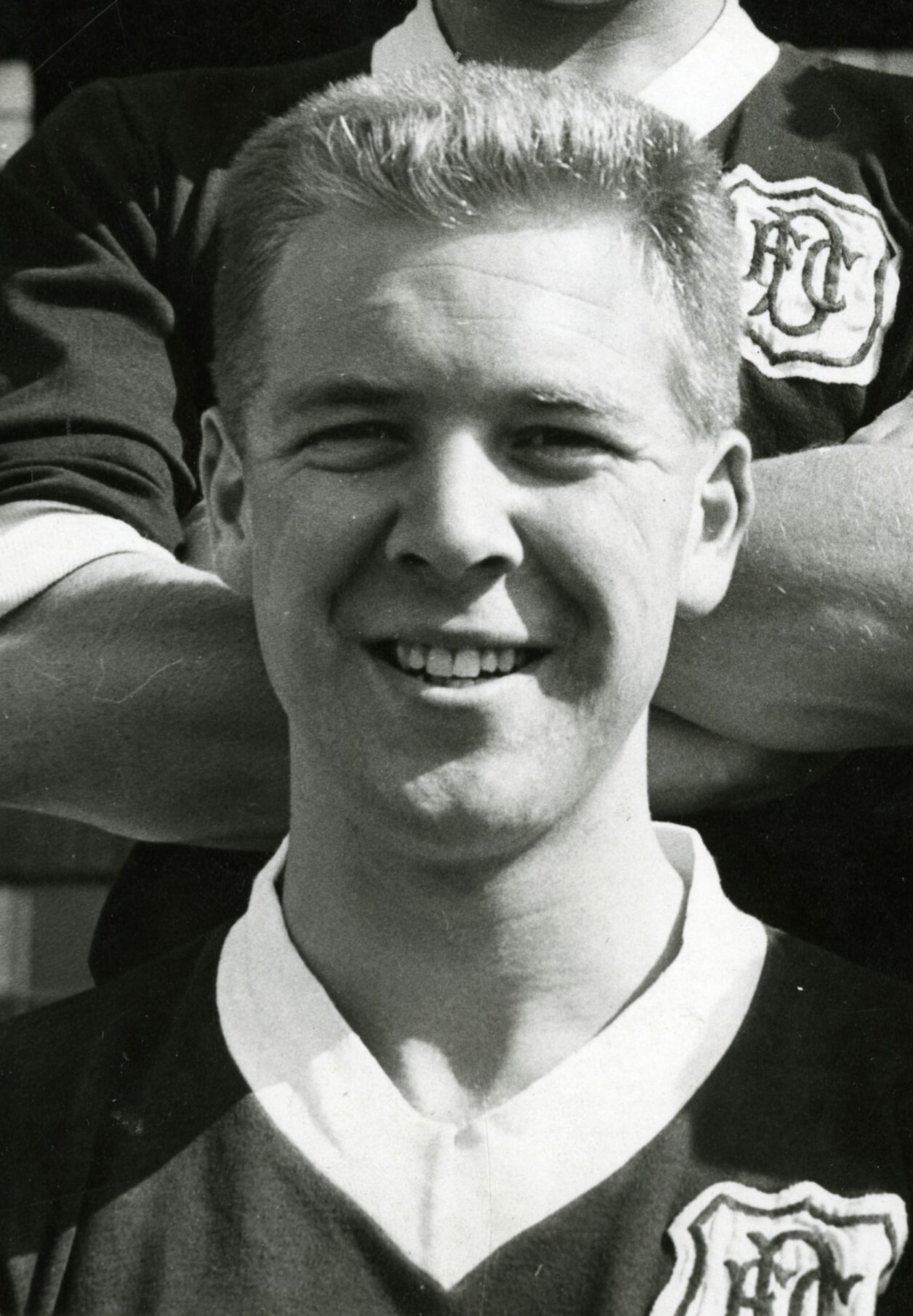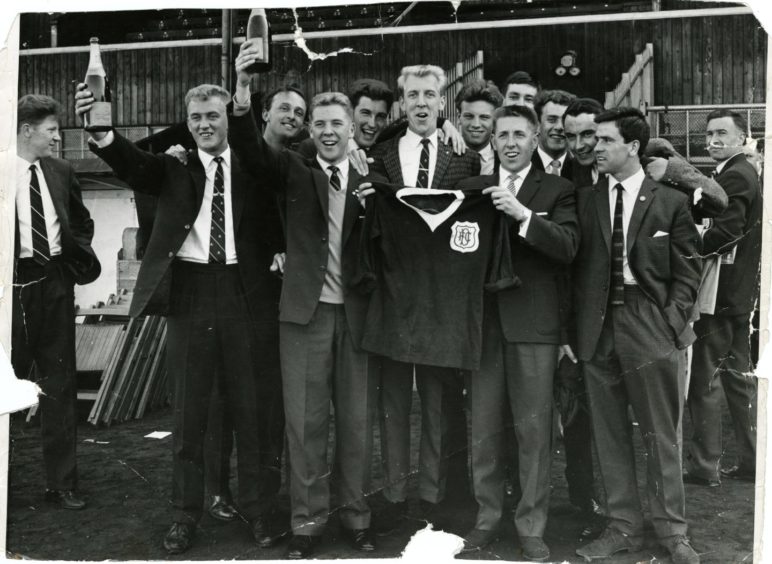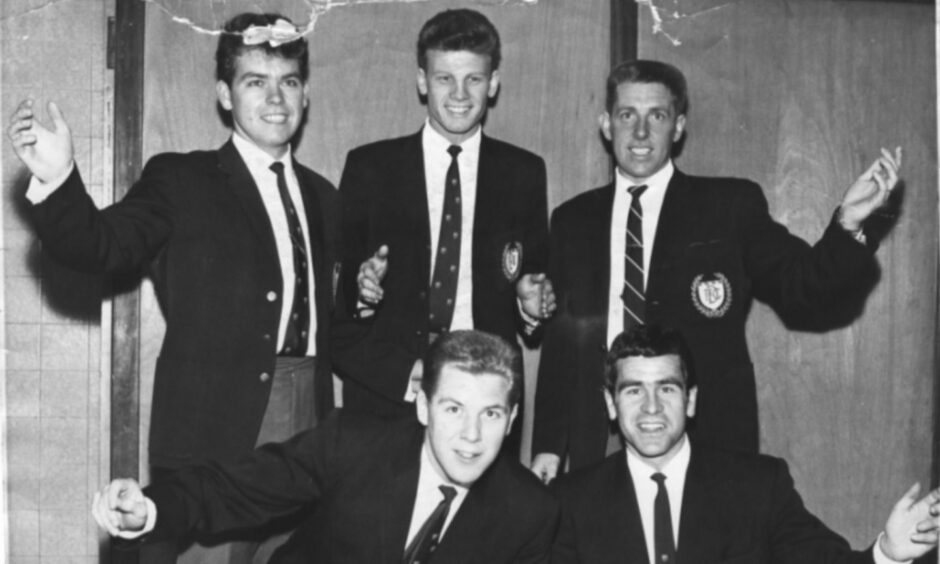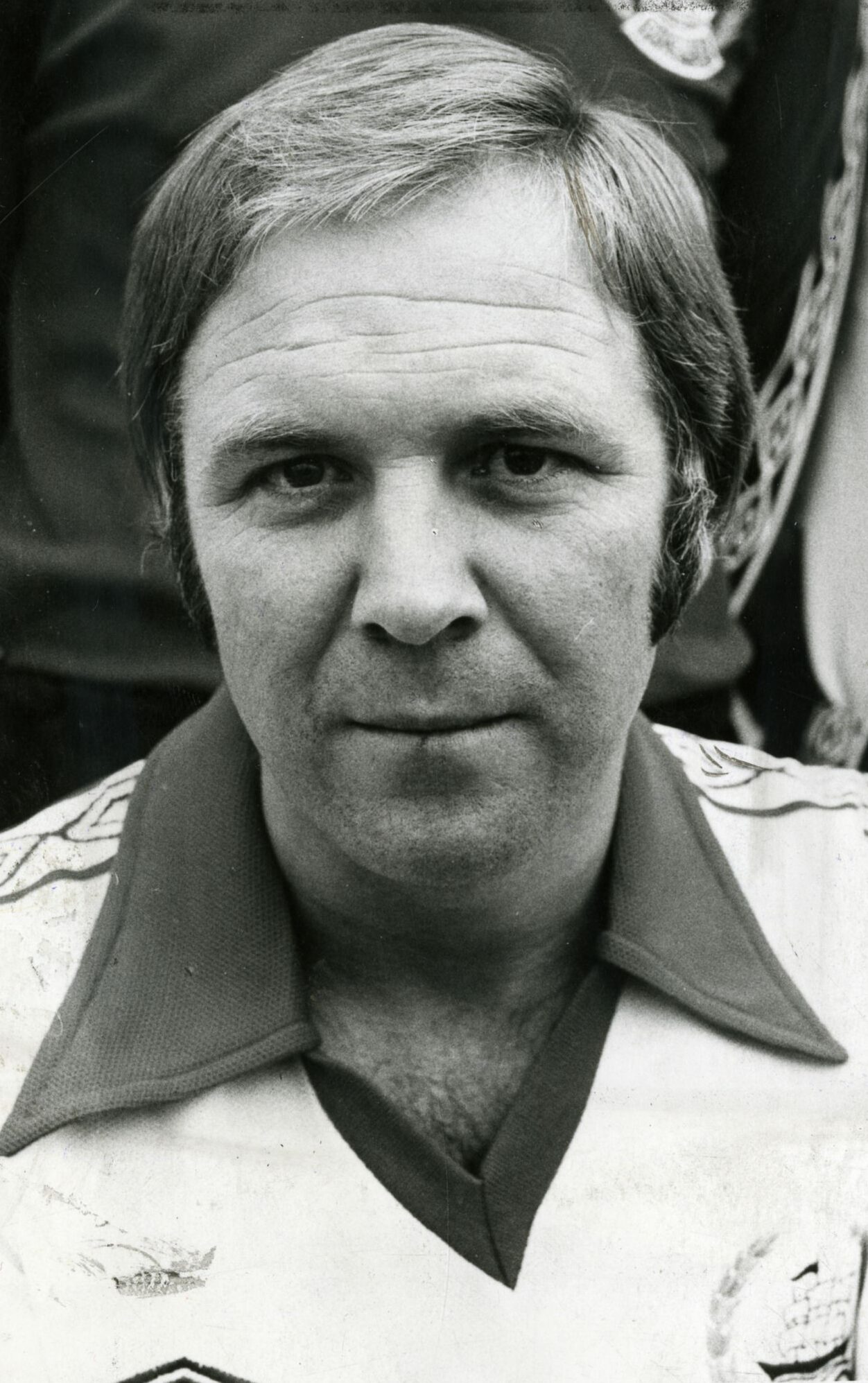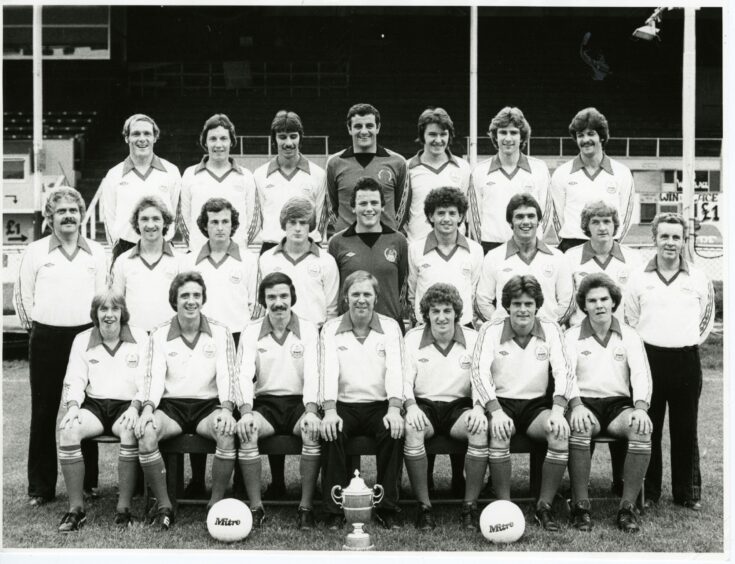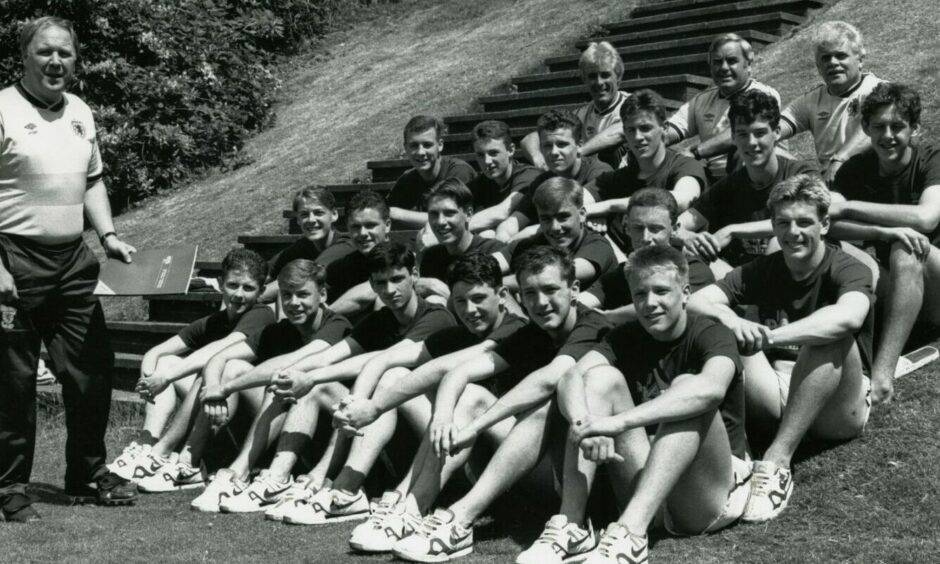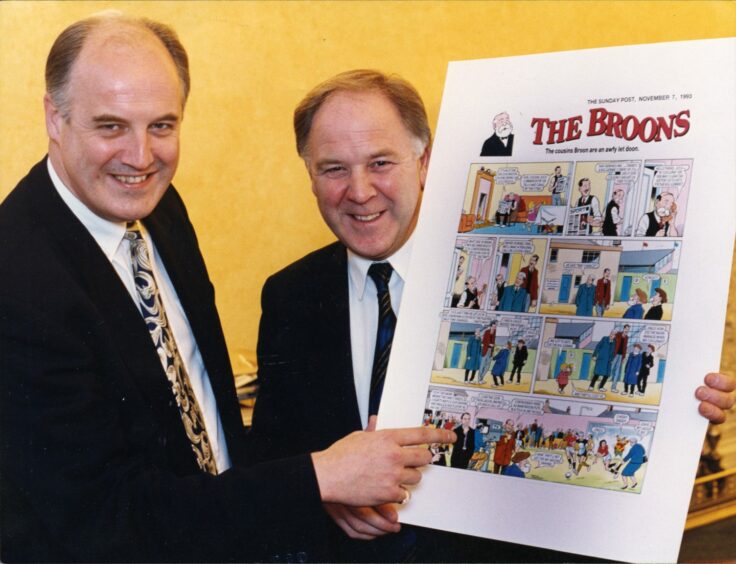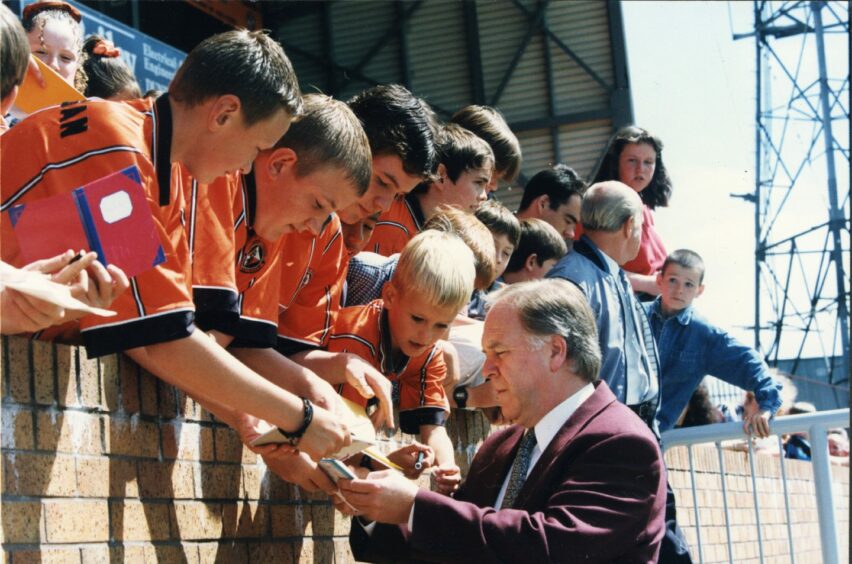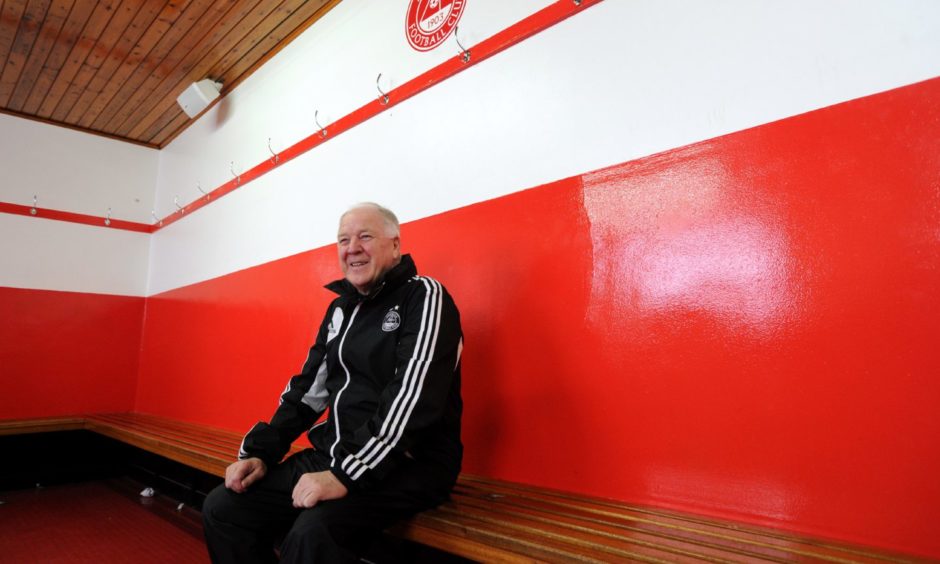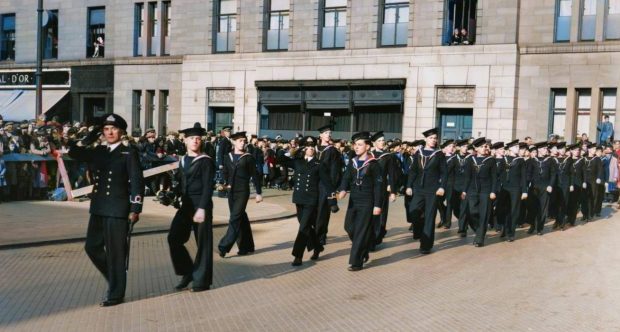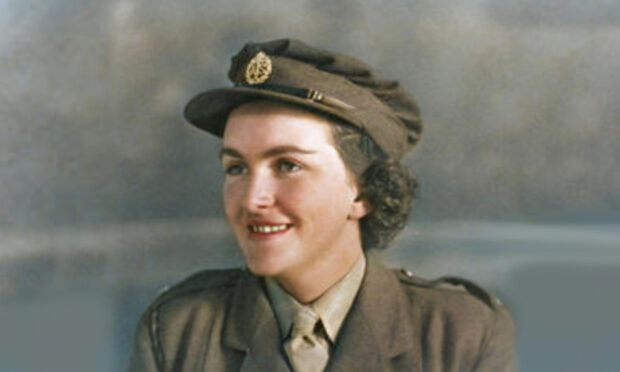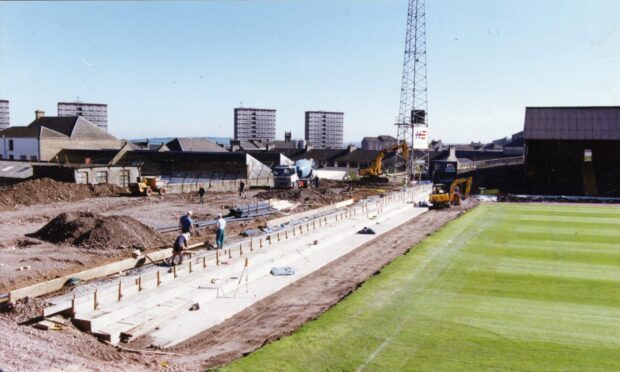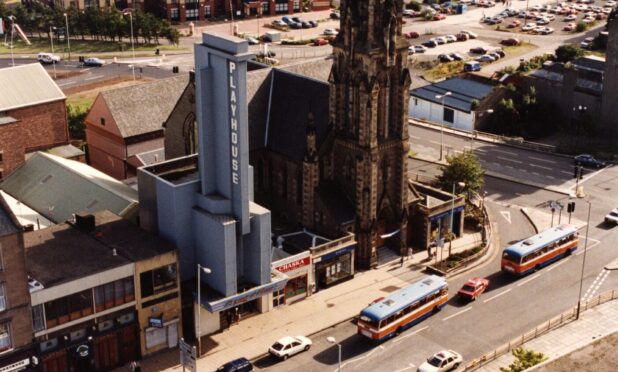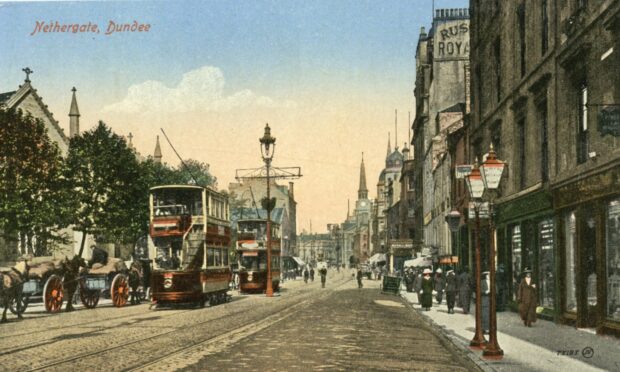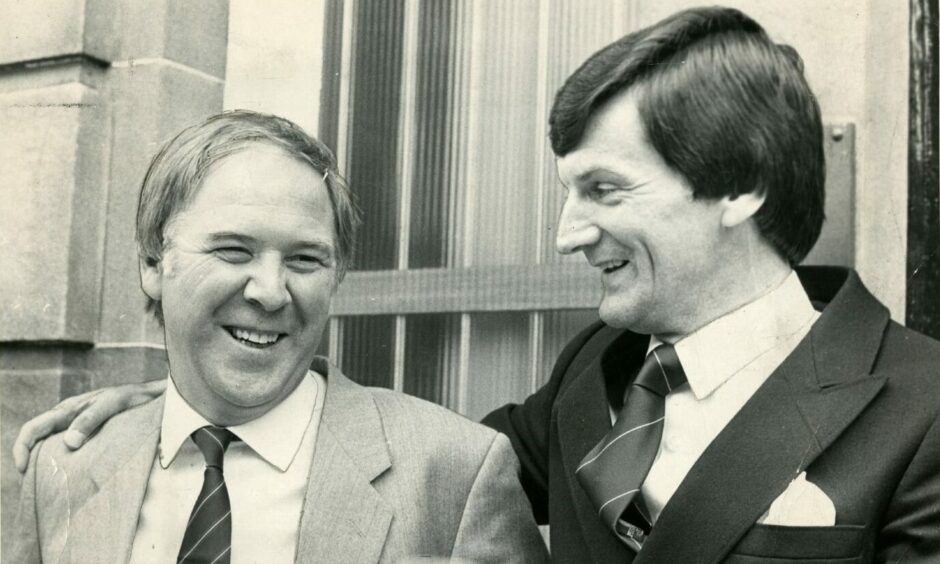
Craig Brown rubbed shoulders with the game’s greats but never lost the common touch.
Dundee and the rest of the Scottish footballing family was plunged into mourning when Brown passed away on Monday at the age of 82, following a short illness.
The DC Thomson archives team has dug out a selection of photographs celebrating Brown’s life and career, as tributes continue to pour in from colleagues and fans.
Some have not been seen for decades.
A war child, born in Corkerhill, Glasgow, the son of a professional footballer, Brown captained a Scottish schoolboys’ side which included Alex Ferguson and Billy McNeill before gaining a Scottish Junior cap with Coltness United.
In 1958, as a teenager, he signed for Rangers.
There his career progression was stalled as a pool of 40 couldn’t squeeze into two teams of 11.
Brown moved to Dundee on loan in January 1960.
He became new manager Bob Shankly’s first signing for the Dens Parkers.
The move was made permanent that summer when Dundee agreed an £8,000 fee.
Brown’s move to Dundee FC coincided with the best period in the club’s history, although recurring cartilage problems curtailed any possibility of establishing himself.
His one big regret was the fact surgery meant he was forced to listen to Dundee’s run-in to title glory in 1962 on the radio while recovering in a hospital bed.
Brown did make it out in time for April 28 to accompany his team-mates to McDiarmid Park in Perth and watch them win the league by defeating St Johnstone 3-0.
The full-back was the 12th man during Dundee’s amazing European Cup run the following season where they almost went all the way to the final at Wembley.
Dens skipper Bobby Cox was ruled out of the semi-final against AC Milan and Brown would have been his replacement but he pulled a leg muscle in a reserve game.
There was more harmony off the field.
Brown was part of right-back Alex Hamilton’s singing group, Hammy and the Hamsters, which included Kenny Cameron, Alex Stuart and Hugh Robertson.
The group released a single in April 1964 before the Scottish Cup final against Rangers, which was entitled My Dreams Came True with She Was Mine on the flipside.
Unfortunately, the call from Top Of The Pops never came despite the group being popular in Dundee, and the quintet quickly returned their full attention to football matters.
Injury limited his first-team appearances in a six-year stay with the club and, beset by knee problems, he moved quietly to Falkirk.
Five operations later, and at the age of only 28, the condition of his right knee forced him out of the game for good.
His playing days over, Brown completed his coaching certificates while keeping contact with the professional game by writing match reports for The Courier and The Sunday Post.
He took a BA degree through the Open University and moved on to become a PE teacher.
He was also briefly a primary headmaster in Lanarkshire and thereafter became a lecturer in primary education at Craigie College in Ayr.
He wasn’t out of the game for long, becoming assistant manager of Motherwell under Willie McLean, the eldest of the footballing McLean brothers.
In 1977 he moved to part-time manage Clyde, whilst also working as a primary school head teacher, taking over when they were Second Division strugglers, winning promotion and establishing them in a comfortable slot in the First Division.
He had become one of Scotland’s most accomplished educational authors, completing a textbook for schoolteachers called Activity Methods in The Middle Years while preparing another to help illiterate adults with their reading difficulties.
But football dominated his life to the extent that, in one famous week, he saw 11 games.
It went something like this: two games in the Eastercraigs tournament in Glasgow on Sunday, Clyde reserves against Glencairn on Monday, Celtic and Hibs reserves on Tuesday afternoon and Queen’s Park v Stenhousemuir at night, the first half of Cowdenbeath v Berwick and the second half of Raith Rovers v Albion Rovers on Wednesday, Clyde reserves against Hamilton on Thursday, Scotland Under-18s v Wales on Friday and a school game in the morning followed by Clyde against Cowdenbeath in the afternoon on Saturday.
After the 1986 World Cup, he was appointed Scotland’s Under-21 coach, charged with the development of Scottish football alongside national coach Andy Roxburgh.
He was in charge when the World Under-16 tournament was held in Scotland in 1989.
His young team won through to the final, losing controversially to Saudi Arabia in front of 53,000 at Hampden Park.
The Saudis were later accused of fielding several over-age players, although no formal investigation was conducted.
Brown played an important backroom role when Roxburgh took the full Scotland side to the 1992 World Cup finals in Italy.
He progressed from loyal lieutenant to commander-in-chief when he succeeded as Scotland coach the following year, continuing a long run of Scotland managers who did not earn a full cap for their country.
Because of that, perhaps, it wasn’t altogether a popular appointment.
But when Brown steered the Scots to Euro 1996 and then the 1998 World Cup finals, this was expeditiously forgotten by an appreciative Tartan Army.
Brown led Scotland to victory over England at Wembley in 1999 but ultimately they lost out on the European Championship after an aggregate play-off defeat to Kevin Keegan’s side, and he resigned after missing out on the next World Cup.
Brown managed Preston for just over two years before being replaced, before Motherwell asked him to take over following the departure of Jim Gannon in 2009.
Within a year and at the age of 70, Brown left Fir Park following an approach by Aberdeen, where he spent two full seasons in charge before stepping down in May 2013.
Having served his country successfully as both assistant and boss of the national team and managed clubs from Clyde to Aberdeen, there are many accolades that can be listed when Brown’s career is examined.
In fact, usually there are too many to mention, but one the man himself would always include is that he was a member of the Dundee squad crowned champions in 1962.
Speaking in 2012, he said: “I played in enough games to qualify for a medal and it’s something I’m very proud of.
“You only need to look at how many times clubs other than Rangers and Celtic have won the league since to see how big an achievement it was.”
